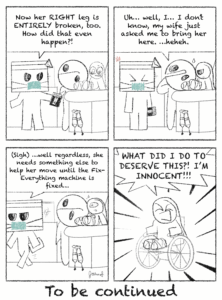The opening remark by founder and former head and founder of the M.K. Gandhi Institute for Nonviolence set the somber tone for “Dialogue With Arun Gandhi,” an event hosted by WRUR.
“I won’t say it’s a pleasure to be here this evening because it’s not a very happy occasion for me,” he said. The discussion was held at the River Level in the Interfaith Chapel. Although the turnout was rather low, the level of intrigue and tension was high among students and even the guest speaker. Gandhi began the dialogue with a statement about the pressing issue of nonviolence.
“We have to become aware of all the violence that is growing in the world in every country and find ways to reduce this level of violence to the bare minimum,” he said.
He went on to address the controversy at hand: his resignation from the chief post at the Institute for Nonviolence as a result of his controversial comments on a Washington Post blog.
“I feel very pained and very sorry for having caused that kind of rift in the community,” Gandhi said.
He explained that he had written the blog post in haste and deeply regretted grouping all Jews with Israel.
“All hell broke loose and I was at the center of it,” he said. He explained that he is not done promoting nonviolence, despite his resignation.
Next came a series of students’ questions written on cards and delivered to Gandhi orally by Director of the Office of University International Relations Cary Jensen, a friend of Gandhi’s. Students asked Gandhi to clarify the Jan. 7 blog and to explain the “culture of violence” and his views of Israel.
Gandhi responded candidly. He believed that the United States and Israel perpetuate this “culture of violence” and said that Israel does so by manipulating the collective memory of the Holocaust in the Jewish people to create a limited approach to the Holocaust.
He believed that Jews decided after the Holocaust to prevent any future episodes of genocide against the Jewish people by protecting Jews and no one else. He said that hate and distrust are what caused the Holocaust and that Israel is using those very sentiments to protect itself from its neighbors.
“By perpetuating the memory of the Holocaust, we are perpetuating that hate that caused the Holocaust,” he said. The only path to peace, according to Gandhi, is an end to hate.
Gandhi would have liked to have seen the Jews become “People of Peace” and protectors of everyone from the violence they endured immediately after the Holocaust.
Gandhi’s criticisms of Israel continued with the statement that Israel should not be an exclusively Jewish state.
According to Gandhi, nationalism is a dividing factor that breeds hate while unity fosters mutual acceptance and peace.
“Nationalism leads to violence,” he said.
He said that Israelis and Palestinians will only come to peace through nonviolence, though he was not explicit as to who should use the tactic and how it should be implemented in this circumstance.
Next, Gandhi answered questions pertaining to Zionism in the United States.
“The Zionist lobby has destroyed my life,” Gandhi said.
Gandhi said that the lobby spread the word to all universities to cancel his invitation. The Zionist influence in the media, he said, has silenced his views.
“Nonmainstream thinkers are crucified,” he said.
Gandhi also reacted to the situation surrounding his resignation.
“[I was] disappointed with the school’s response from the University community,” he said.
He believes the school missed an opportunity to have a critical educational discussion about the issues behind his resignation.
Students submitted questions before the forum and Gandhi answered some selected questions.
Many students were skeptical of this solution to the Israel-Palestine conflict. Many believe that the nonviolent option has been exhausted and that Israel can exist with hostile neighbors only through protective violence.
Senior Ari Stillman found Gandhi’s answers unsatisfactory.
“I think his argument is baseless and he lacks the educated qualifications to merit the drastic judgments that he makes,” Stillman said. “I thought he maintained an air of apologetic defense. However, the students seemed to get agitated with his responses, as he just dug his hole deeper instead of shoveling in the dirt.”
Karron is a member of the class of 2011.

